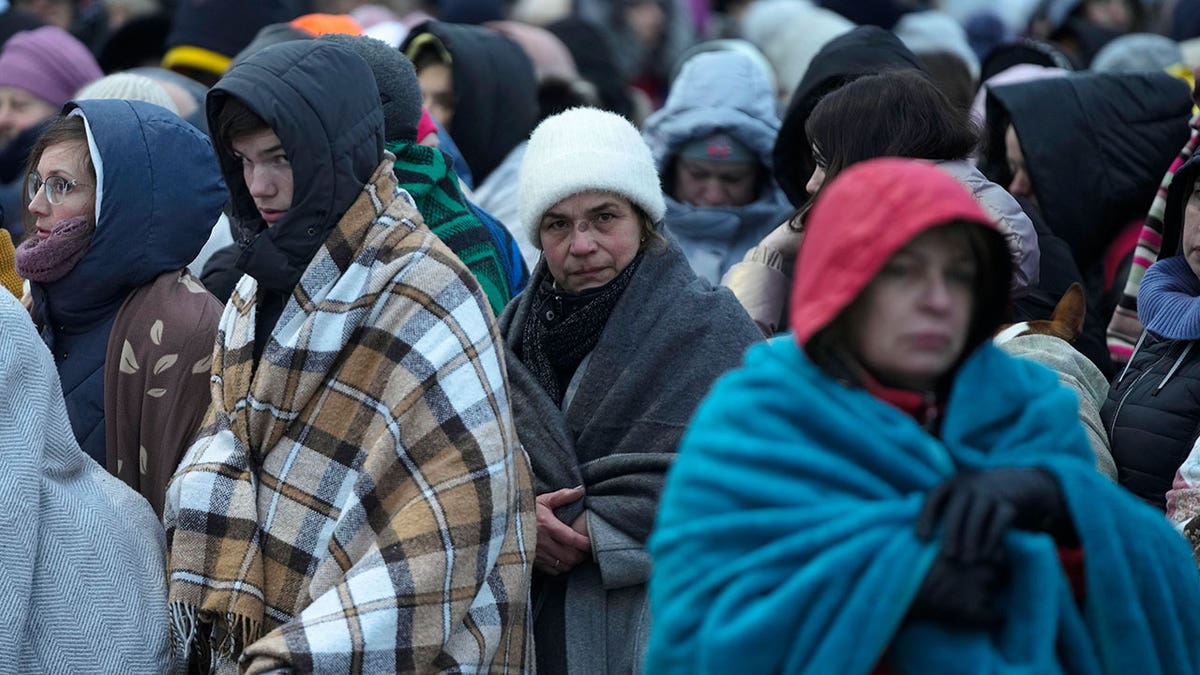Refugees fleeing crisis in Haiti and Venezuela face new nightmare as floods ravage southern Brazil
After fleeing hunger, violence and natural disasters, Haitian and Venezuelan refugees in southern Brazil face yet another challenge as severe flooding devastates their new homes in Rio Grande do Sul. (COURTESY: REUTERS)
On June 20 we recognized World Refugee Day – a day set aside every year to remember vulnerable people who have fled their country out of fear of further persecution if they were to return.
Who are the perpetrators of this persecution? Over much of the past century, communist and totalitarian regimes have been the biggest cause of refugees.
World Refugee Day is rooted in the 1951 Convention on the Status of Refugees. Article One of this U.N. convention defines a refugee as someone who, "owing to well-founded fear of being persecuted for reasons of race, religion, nationality, membership of a particular social group or political opinion, is outside the country of [their] nationality and is unable or, owing to such fear, is unwilling to avail [himself or herself] of the protection of that country."

Ukraine refugees wait in line at the border of Poland. (AP)
In the context of 1951, it would be ridiculous to think that there were masses of refugees from the United States, Canada, Great Britain or other Western democracies fleeing eastward seeking the protection of the Soviet Union.
EU UNABLE TO DETERMINE IMPACT OF REFUGEE FUNDS GIVEN TO TURKEY, AUDITORS SAY
Rather, by 1951 there were millions of people who no longer felt safe in going home because of their Christian faith, because they were an ethnic minority from a country that had been gobbled up by the Soviet Union, such as the Latvians, Lithuanians and Estonians, or because they were publicly on record as pro-democracy, such as many Poles, Hungarians and Czechs.
The majority of all refugees came from communist countries during the Cold War. Here is a snapshot from the end of the Cold War that demonstrates the crimes of communism. In 1991, the world’s refugee population was just over 17 million people. The vast majority fled from communist countries, including the Soviet bloc as well as China, Vietnam, Ethiopia, North Korea and elsewhere.
The United States has been the destination of choice of many immigrants who flee their homes because of political, religious and economic persecution. A tragic example of this are Cubans – going all the way back to the 1960s with the brutal takeover of their country by the communist revolutionary Fidel Castro.
CRITICS PAN BIDEN PLAN TO BRING GAZA REFUGEES INTO US: 'TERRORISTS ENTERING OUR HOMELAND'
Since then, there have been successive waves of Cuban refugees making their way to the United States. Indeed, one statistic suggests that 1.4 million Cubans fled to the United States after Castro took over their country, and the number continues to rise.
Sadly, many of the communist regimes that caused refugee crises during the Cold War due to their totalitarian tactics and persecution continue as nefarious actors today, particularly communist and communist-successor governments in Moscow, Havana, Beijing, Pyongyang and elsewhere.
At the end of 2023, the U.N. high commissioner for refugees counted 37.6 million refugees. Nearly three-quarters of these come from just five countries, and they are countries that have often had a direct influence of a totalitarian regime.
UN MIGRATION AGENCY CHIEF WARNS NUMBER OF SYRIAN REFUGEES LEAVING LEBANON WILL KEEP RISING
Afghanistan, with 6.4 million people, exists in a perennial refugee crisis that began all the way back in 1979 when the Soviet Union invaded the country. Many of those Afghan refugees ended up in Pakistani refugee camps and have never been able to go home.
Also on the list is socialist Venezuela, where more than 6 million refugees have fled the once wealthy nation. The authoritarian socialist government in Caracas has displaced many pro-democracy citizens from the media, business and religious sectors over the past 20 years.
Today, the enduring legacy of communism is also responsible for a refugee crisis in Europe. Russia’s brutal war in Ukraine has displaced nearly 6 million Ukrainian refugees, due to revisionist policies of former KGB Lt. Col. Vladimir Putin. Tragically, the UNHCR reports that this forced displacement has only increased in 2024.
CLICK HERE FOR MORE FOX NEWS OPINION
World Refugee Day, though often overlooked by the average citizen, reveals the plight of desperate and courageous people fleeing persecution for their fundamental religious convictions, their aspirations for freedom and democracy in their own country, or their yearnings for opportunity.
World Refugee Day should also make us thankful to live in a country where our own people do not need to flee for a better life and reminds us once again that one of the terrible ongoing crimes of communist, socialist and post-communist authoritarian states is the criminal way that they treat their own people, forcing them to flee for better lives abroad.












































